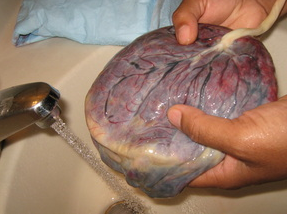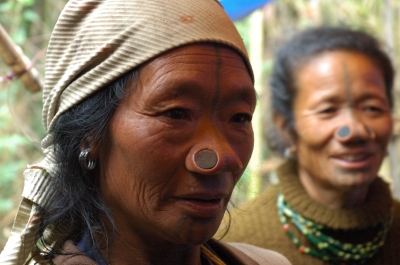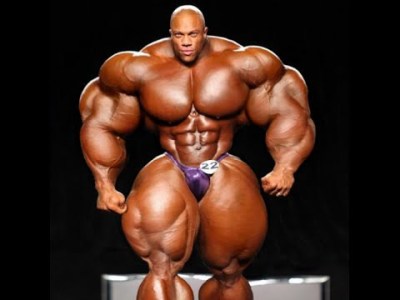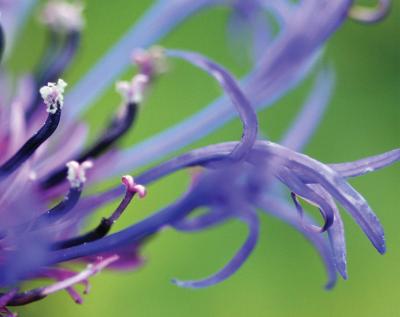 In the medieval European philosophy, woman’s body was seen as a vessel filled with sins, while man was regarded as a more spiritual being. This is one of the reasons why the concept of body is reassessed in feminist studies and why body is elevated in neo-paganism and Goddess spirituality. My fear is that nowadays body can be treated as an instrument for social advancement.
In the medieval European philosophy, woman’s body was seen as a vessel filled with sins, while man was regarded as a more spiritual being. This is one of the reasons why the concept of body is reassessed in feminist studies and why body is elevated in neo-paganism and Goddess spirituality. My fear is that nowadays body can be treated as an instrument for social advancement.

We still live in a society that is deeply hostile to women’s bodies. Alla Demidova, an actress I respect for her talent and her critical mind, did a programme of Christmas-related poetry. I could not listen to more than five minutes of it.
The poems have been all written by men. I am not saying that men do not have the right to write about birth. I am saying that our prevalent image of Christmas should not be based on male view alone. In this sense I much better like the Carol from “The Vicar of Dibley” (one of my favourite British comedy series, about a female Vicar), which describes the movement of baby Jesus through Mary’s birth canal.

I have no intention of attacking the view of Christmas that might be dear to believers. I am pointing out that if people’s view of Christmas does not include the blood, the sweat, the shaking and the yelling, than from here it can only go to a world without women’s bodies, without women’s struggles, victories and joys.
The US, which celebrates Christmas like there’s no tomorrow, is one of the only two countries on earth without a paid Maternity Leave. What the US does to its Mothers and babies is basically leaving them to their own devices – giving them less than a warm place next to oxen and donkeys.
While in some spiritual traditions, the conflict is often constructed around body vs. spirit, in Buddhism the dichotomy is rather between mind and heart. You can also say that it is between the societal conventions that you incorporate into your personality uncritically, and that which is real: the deathless, nirvana, freedom.
I feel that we still hold on to many outdated concepts of body, which lead to harmful social practices. We often do not realise what strong hold old habits have on us. Examples include patriarchal elements in same-sex or feminist weddings, with someone “giving” one partner away to another. Another one is distinguishing between meat and fish when talking about vegetarianism. From the “suchness” point of view, there is no difference between the flesh of land animals and that of sea animals. It is the remnant of the Catholic and Orthodox practice of fasting, when on some days fish was allowed, but not meat.
 One of these old habits is fashioning our bodies in accordance with the latest social preferences. This obsession with subjugating our body is in my view part of our drive to turn nature into culture, to cultivate it. And so we find body paint, tattooing, piercing and scarring as some of the most ancient social practices, both in anthropological and archaeological materials.
One of these old habits is fashioning our bodies in accordance with the latest social preferences. This obsession with subjugating our body is in my view part of our drive to turn nature into culture, to cultivate it. And so we find body paint, tattooing, piercing and scarring as some of the most ancient social practices, both in anthropological and archaeological materials.
This “civilising” the body, fitting it into human world predates patriarchy. These practices had to do with marking identity and status. Today, when patriarchy coupled with capitalism rule, the subjugation of bodies is related to exploiting nature and oppression of women. Body can be seen as a product for literal or metaphorical sale.
 I have been watching the BBC series “Young, Welsh and Pretty Skint“, in which people treat their bodies as they would a fashion accessory. This year toned thighs are in fashion, the next year curves are preferable.
I have been watching the BBC series “Young, Welsh and Pretty Skint“, in which people treat their bodies as they would a fashion accessory. This year toned thighs are in fashion, the next year curves are preferable.
I am not degrading fitness. (See this feminist blog about fitness). I am advocating for deep respect and humility toward your body.
There is this joke in Russian. A cowboy rides across a mountainous area. He sees a ravine, and he says: “I’m a cowboy, I can make it”. So he jumps over the ravine and carries on. He sees another wider ravine, but he says: “I’m a cowboy, I can make it”. Then he sees a very wide ravine, yet he still says: “I’m a cowboy, I can make it.” At this point his horse throws him off her back and says to him: “You’re the cowboy, you make it.”
This is what I would do if I were a body of many, many modern humans. You do it, if you think you know better.
Body does so much for us. Do we really think that with our “mind” or brain we could run our heart muscle, or the muscles in our intestines? Could we perform millions of functions that our body does for us every second?
And yet, we have the audacity to misuse our body. We do not think twice about poisoning it, overeating, starving ourselves, not sleeping enough. We think we have the right to artificially make our bodies work “better” by taking caffeine and other stimulants.
You know how we say” body of knowledge”, or “body of water”. Our body is body of nature. Our body is body of humanity.
 Body is not a fashion accessory. It is not a tool for helping us go up in society. Body is not for anything, in fact. Body is the only way for us to experience life. Body is life. In the same way as we cannot create life out of chemical elements in laboratories, we cannot control body.
Body is not a fashion accessory. It is not a tool for helping us go up in society. Body is not for anything, in fact. Body is the only way for us to experience life. Body is life. In the same way as we cannot create life out of chemical elements in laboratories, we cannot control body.
Life is flowing. And our mind’s activity is but a tiny part of it. And yet by some slight of hand we turn the whole picture upside down and call a few excerpts from the constant mental chatter “I”, and the rest of our whole existence – “my body”. Which I am allowed to use, abuse and misuse in whichever way I like. ‘Cos “I” am a mental king of this castle. Well, “mental” is the right word.
Oxana Poberejnaia is a content writer at http://content4you.org. She was an Officer of the University of Manchester Buddhist Society while studying for a PhD in Government, and has been involved in organising the Manchester Buddhist Convention, now in its 10th year. Oxana is now exploring the Sacred Feminine through marking seasonal festivals, working with her menstrual cycle, frame drumming and shamanic journeying, while keeping the practice of Buddhist meditation. Oxana is an artist and an author. Her works can be found on her blog. http://poeticoxana.wordpress.com


Very interesting! Your observations about body as a fashion accessory are spot-on. Which is, of course, why anorexia and bullimia are so popular. (Sorry.) I agree that not everything is about the boys.
LikeLike
Dear Barbara! Thank you so much for your encouragement!
LikeLike
Some powerful pictures too, Oxana. The grotesque muscled male ( something that some women are also adopting as a “sport/art/fitness” model) and the lady on the horse driven by the scary man, are both strong images to get one thinking.
Thank you for the stimulus for loving my body and listening to it’s wisdom.
LikeLike
Hello, Barbara! Thank you very much for your kind words! Yes, definitely. It is my challenge as well – listening to my body. I so often push it to limits, it’s just so unwise.
LikeLike
Wonderful post. Haven’t seen so many diverse photographs to illustrate one idea ever. The guy has me bursting into unbelieving laughter. The placenta is beautiful. Love the reminder that Mary, Mother of Jesus, gave birth the normal way, let’s not discuss how she conceived in the first place.
LikeLike
Hello, petrujviljoen! Smiling at your comment. Yes, definitely.
LikeLiked by 1 person
Great post, Oxana. As a feminist pagan, I couldn’t agree with you more. How do you align these views with your Buddhist meditation practice?
LikeLike
Thank you so much, Nancy, you are so kind. Buddhist meditation practices are so many and so diverse. However, I would argue that most of them at least in words start with body. You know, I would almost swear under oath that all Buddhist meditation instructions start with one about how to get your body in a meditation position. And almost all mention “relax”. And that it more than half the battle, I believe. I myself practice Vipassana meditation, which is following one’s breath. The practice itself is firmly rooted in one’s body: it is watching what’s happening here, in the body. Plus, most teaching centres around body too. For instance, the First Foundation of Mindfulness is Body. Also, we are encouraged to start investigating each emotion or thought with how it feels in our body. This is how I know from experience that most of my own negative emotions and views stem from tiredness, overwork and some such. Next, if the emotion is not related to tiredness, still the best way of dealing with it is being with it, staying with it in your body – I also have found it to be true from my practice. These are just a couple of examples.
LikeLike
A wonderful post. I find that simply listening to my body makes such a difference in quality of life – resting when I’m tired, eating when I’m hungry, choosing foods that nourish rather than feed food addictions, taking the time to exercise, spending time in nature – all these not only make me feel better but calm my mind and soul, too. They make me feel whole and at one with myself. But so rarely is this encouraged, as you show. A change in not only our own behavior but our whole culture is needed for sure.
LikeLike
Hello, Carolyn! Thank you for your kind encouraging words. I feel exactly the same. Body is so degraded in this culture – unless it’s a way to suck out money out of our pockets in the name of “improving” it. We are fooled into spending our time in front of TVs or other sources of external entertainment, instead of being encouraged to be with ourselves and our loved us as much has possible. Insane society, in the true sense of the word. The future humans (if humanity survives) will look at this disillusionment with pity.
LikeLike
I am advocating for deep respect and humility toward our body in youth and old age. Why do we not understand the great beauty of aging? Look at pictures of Georgia O’Keeffe in old age, for example — wonderful, FABULOUS. She is ALWAYS Georgia O’Keeffe in all her photos. She was in reality, a profoundly true person, and a very great artist whatever her age.
LikeLike
Hello, Sarah! So true. It’s all about information war, is it not? Whoever has more money and more vested interest, wins and gets to send the message. So we hear more of: “Do not show the signs of aging no matter what! Remortgage your house, if you have to, but get that surgery done!” Wisdom is also out there, but we just simply have less money to cover our cities is our billboards: “Body is beautiful whatever the age! You’re beautiful! Go out there and be happy!”
LikeLike
Hello, Sarah! So true. It’s all about information war, is it not? Whoever has more money and more vested interest, wins and gets to send the message. So we hear more of: “Do not show the signs of aging no matter what! Remortgage your house, if you have to, but get that surgery done!” Wisdom is also out there, but we just simply have less money to cover our cities is our billboards: “Body is beautiful whatever the age! You’re beautiful! Go out there and be happy!”
LikeLike
Fascinating throughout, and beautifully illustrated. This part was particularly interesting: ‘While in some spiritual traditions, the conflict is often constructed around body vs. spirit, in Buddhism the dichotomy is rather between mind and heart. You can also say that it is between the societal conventions that you incorporate into your personality uncritically, and that which is real: the deathless, nirvana, freedom.’ I’ll be re-reading this essay and reflecting on it. Thank you for posting.
LikeLike